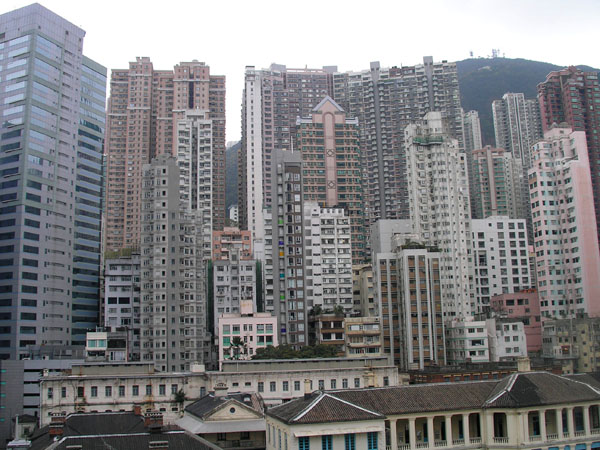How Much Density Is Too Much Density?
Since returing home from my research trip to Hong Kong, I keep finding myself coming back to this picture:
And though the image does showcase the vast density of Hong Kong, it can’t possibly convey the true feeling a person experiences when witnessing this first hand. Even having been in Hong Kong for a couple of days, this sight really did leave me speechless.
And the numbers back up that impression: Hong Kong has a population density more than twenty times higher than Seattle’s.
Seattle, like an increasing number of U.S. cities, has begun to prioritize infill and transit-oriented development. The hope is that larger numbers of people living closely together allows for amenities within walking distance and the potential for more environmentally sustainable living where people can make trips by on foot or by taking public transit.
But, can there be a thing as too much density? While there are many proven benefits to dense urban environments, there is also the potential for negative externalities. A report from Demographia points out the world’s most densely populated cities generally score poorly on the prosperity scale (when focusing on price and income). Hong Kong while ranking 42nd in population was 3rd in density at roughly 66,000 people per square mile. For comparison, Bangladesh has 90,000, Mumbai has 70,000, and Seattle is a little under 3,000. However when ranking by gross domestic product, Hong Kong was 16th, Mumbai was 29th, and Bangladesh was in the 70s.
Of course the inverse is not necessarily any more true. Less densely populated cities don’t seem to have a greater chance of being prosperous, so there may not be a direct correlation between prosperity and density.
More data is needed to determine the level of density that is most efficient and sustainable for each unique urban area. However, the readily observable prosperity and livability of Hong Kong makes it clear that cities like Seattle have plenty of room to get more dense before worrying about too much density.
>>>
Marc Weigum is owner of Weigum Properties and an Affiliate Fellow of the Runstad Center for Real Estate Studies in the College of Built Environments at the University of Washington.


